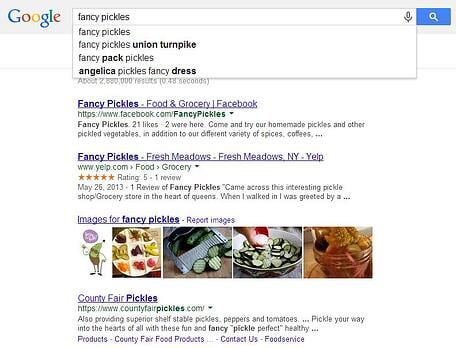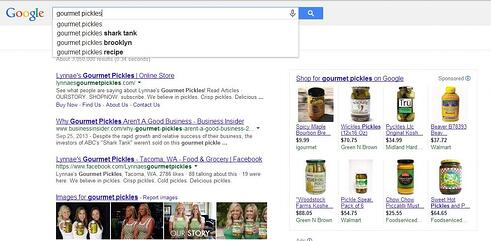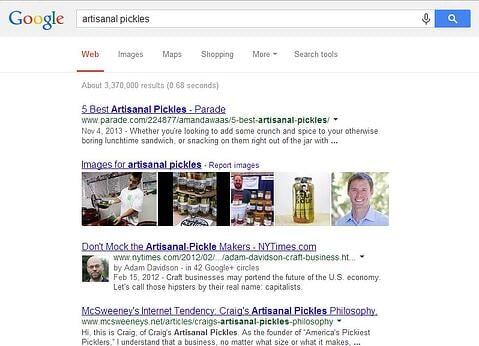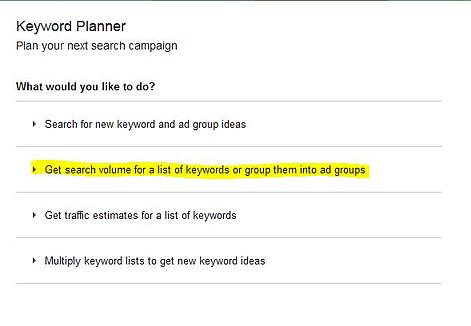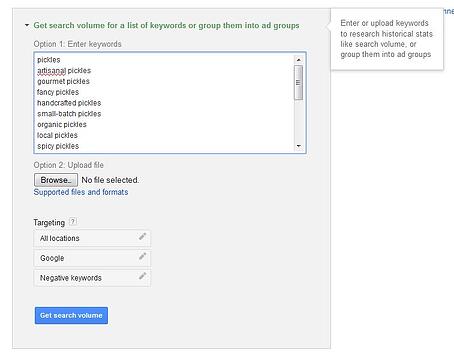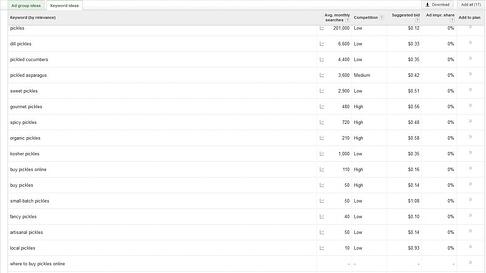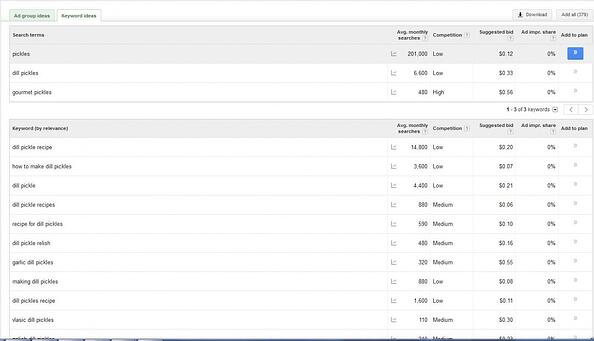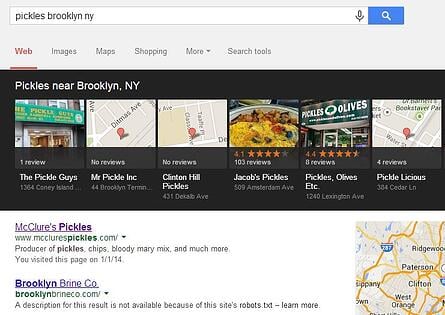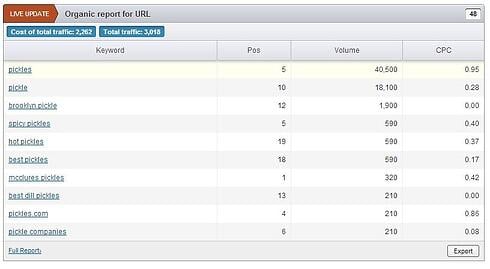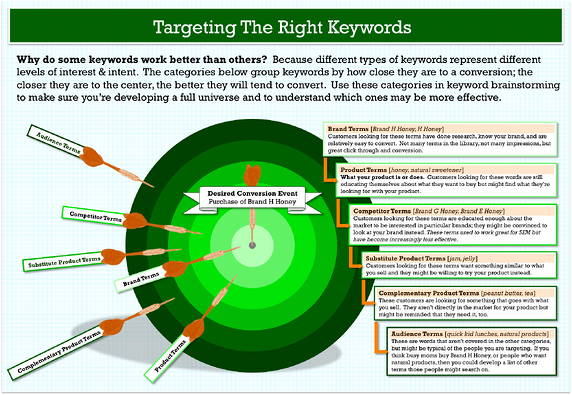Ah, keyword research. Not so long ago, this was one of the most straightforward steps in any link building campaign. Google would provide the list of keywords driving organic search to your site. You would build links using the the top keywords as anchor text. You would look for opportunities for traffic by identifying for which terms you were getting some traffic but ranking poorly. You would start a link building campaign focusing on these keywords. Each of these links would be a vote for your site that would signal your importance to Google’s web crawlers. The anchor text would work with other on-page factors and confirm what your site was “about.” Straightforward to understand, straightforward to manipulate--
Not anymore. Building a slew of links with exact-match anchor text is now considered a link scheme. Even if this weren’t the case, this would be difficult to continue to do as Google no longer gives you your keywords for free. As of September 23, 2013, 100% of Google’s searches are secure, which means that analytical data no longer exists for Google’s organic search traffic. 95% or more of keywords are shown as being “(not provided).”While there are other ways to determine how internet users have discovered your site, it’s much more difficult to track which keywords led to what outcomes, which makes it more difficult to reproduce previous results or to figure out if your traffic associated with certain keywords has been affected by Google’s new algorithm.
Hummingbird, Google’s new search algorithm, is designed to be better at “conversational search”-- search that answers questions and can keep up with context. Conversational search takes the searcher’s intent into account more than their exact word choice. Google will now rewrite your search query if they believe their language will yield more accurate results. Ranking in the organic search results now has more to do with concepts than keywords.
This series on keyword research aims to do two things: to provide ideas of how to conduct keyword research in a keyword (not provided) context, and to provide ideas of how to use these keywords in the age of conversational search.
As long as concepts are articulated through language, we will need keyword research. We may not use these keywords in the same way, but this research will let us know what potential consumers and Google think our website is about. Keyword research lets us know what terms people are searching for that are related to our topic.
Additionally, it’s important to note that queries that seem synonymous still yield different results. Say you’re looking for fancy pickles for your fancy cocktail party. You search for “fancy pickles,” “gourmet pickles,” and “artisanal pickles”:
All of these queries yield different results, and for each search, that particular keyword is contained in the title of each result. As such, choosing the right keywords can give us article topic ideas and help us figure out our “link building keywords”-- the words that describe who and what is relevant to our products.
How to Conduct Keyword Research
1. Brainstorming
Say you’re starting a link building campaign for a site that sells handcrafted, gourmet pickles. If Google still provided keyword data, this is where I would have suggested figuring out which keywords drive traffic to your site and which could be driving more traffic to your site. KISSMetrics documents a number of these tools here, including Google Webmaster Tools, Google Analytics, and SEMRush.
I will go over how to use SEMRush to see what keywords your competitors rank for in step 3. For now, since we’re link building, we’re going to assume that the intent behind our keyword research is to find new keywords to rank for that will drive your link building strategies.
Anyway, if asked to describe your product in the simplest of terms, you would likely say that you sell pickles. Pickles is a broad keyword, or a head term, which means that it’s more difficult to rank for because a wider variety of websites could potentially rank for “pickles.” Along these lines, the more specific the keyword or keyword phase, the easier it is to rank. So from here, you want to ask yourself:
- What kinds of pickles do I sell? What makes my pickles better than my competitors?
- What can people do on my site?
What kinds of pickles do I sell? What makes my pickles better than my competitors? Well, as you make your pickles from the finest ingredients in small batches by hand, and your spicy pickles are your most popular, it may seem natural to start your keyword list with:
- pickles
- artisanal pickles
- gourmet pickles
- fancy pickles
- handcrafted pickles
- small-batch pickles
- organic pickles
- local pickles
- spicy pickles
- sweet pickles
- dill pickles
- pickled cucumbers
- pickled asparagus
- kosher pickles
This would be a decent starting place, though you could beef up the list by adding modifiers that add a date (“pickles 2014”), quality (“best pickles,” “expensive pickles”), or location (“boise pickles” or “pickles boise”) Also consider adding phrases that reflect what people can do on your site.This will give you a list of potential conversational search queries, such as:
- buy pickles
- buy pickles online
- where to buy pickles online.
Of course, building links that consider all of these terms as keywords would be a bit overwhelming, especially if you don’t know if people actually search using these words. In order to choose the optimal keywords related to your website, you need to consult tools that will tell you which keywords people actually use in relation to your product.
2. Consult the Google Adwords Keyword Planner
While Google Analytics may no longer provide the keyword data for your particular site, it does provide organic search traffic data through its Adwords Keyword Planner tool. Though this tool was designed to help users choose keywords for their paid ad campaigns it will also:
- tell you the number of times each of your brainstormed phrases has been searched on Google in the past month
- suggest keyword phrases related to your general keywords
In order to determine the traffic to the keywords you brainstormed, log into Adwords and click on “Keyword Planner” under “Tools and Analysis.” Under that menu, click on “Get search volume for a list of keywords or group them into ad groups”:
This will open a field for which you will be prompted to “Enter keywords.” Enter them, then click “Get search volume”:
This will default to a page that shows “ad group ideas.” Click the tab next to this, “keyword ideas,” to see the search volume for each term. (Unlike its predecessor, the Keyword Tool, search volumes are displayed for “exact match” only.)
These results show us that of our initial keywords list, “pickles” receives the most search volume, followed by “dill pickles” and “pickled cucumbers.” In deciding which keywords to focus on, you also want to consider the “suggested bid.” Generally, the higher the price, the higher the conversion rate and the more lucrative the keyword. The higher-priced keywords are likely to be the most competitive as well. As such, this tool can also help you to identify opportunities to rank.
From here, we might as well eliminate “local pickles,” “where to buy pickles,” and “handcrafted pickles”-- no one ever searches for them. This means that it would probably be wise to avoid using these terms when talking about your pickles.
Of course, if you’re forgetting terms that could potentially describe your pickles, the keyword planner can help with that, too. In the Keyword Planner menu, click on “Search for new keyword or ad group ideas.” Enter in a few keywords (some people find that it can handle 5-10, I’ve found that it works best with 3-5 keywords.)
As you can see, when I entered “pickles,” “dill pickles,” and “gourmet pickles,” the Keyword Planner suggested a number of keyword phrases I hadn’t considered, many of which have a greater search volume than ones that I had initially written down. If these results suggest anything, it’s that recipes would be a great linkable asset for our hypothetical pickle website.
At this point, it is helpful to download these results and create a spreadsheet of all possible keywords. You will want to come back to this after you search for your competitors’ keywords using SEMRush.
3. SEMRush is great, too!
This wouldn’t be SEO if you weren’t concerned with what words your competitors use, especially if your competitors rank higher than you do in the SERPs. SEM Rush provides tools that can give you similar keyword data to the Keyword Planner, but can also give you insight into what keywords your competitors are ranking for in addition to what keywords your site is ranking for.
Anyone who knows anything about the artisanal pickle game knows that there are two leading pickle makers based in Brooklyn, NY: McClure’s Pickles and Brooklyn Brine. In fact, if you search “pickles brooklyn, ny,” their sites are the top results if you ignore the local carousel:
Naturally, since we are hypothetically up-and-coming pickle producers, we will want to rank for the same terms as these sites. We want to see what has worked for them (especially McClure’s, as they’ve managed to rank for “pickles!”)
To see what keywords McClure’s Pickles currently ranks for, enter their URL into the top search field on your SEM Rush dashboard:
When you click “search,” you will be brought to a page that shows the “Organic report for URL,” with an option to view the full report:
Here, you can see that they rank for a number of terms that we hadn’t considered. We can also see that they rank for their brand name. Branded anchor text isn’t as frowned upon as other keyword-rich anchor texts, and queries that search specifically for your brand name are more likely to turn into conversions because these internet users are simply looking for where they can become your customer.
This would be a good time to add any relevant keyword ideas to your spreadsheet.
4. But when does one use a “pickle?”
These combined methods give us a plethora of keywords to choose from as well as a few ways to sort through them (how often are these terms searched for?), but as pickles don’t exist in a vacuum, it would be wise for us to target keywords, phrases, and concepts that relate to pickles.
Kissmetrics has provided a great infographic on “targeting the right keywords” here:
Their target suggests that while brand terms (the name brand of our hypothetical handcrafted pickles), product terms (pickled cucumbers, spicy pickles), and competitor terms (McClure’s Pickles) are more likely to lead to conversion, it is wise to consider substitute product terms (relish, olives), complementary product terms (hamburgers, bloody marys), and audience terms (cocktail garnishes, spicy foods). The outermost terms on the target will actually be the most helpful when determining your link building keywords.
The next challenge is narrowing down which of these keywords to focus on for your link building campaign. Again, this is less straightforward than it was in the past. Pinning down the most effective keywords used to determine your link building anchor text. Now it can help determine the most effective keywords to use for on-page optimization (Moz covers how to do this, as well as how to narrow down which keywords to focus on here), but when it comes to link building, narrowing down keywords to the ones that are specific, receive traffic, and convert can help us generate guest post concepts, effective long-tail anchor texts, and our link building keywords.


